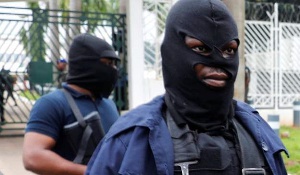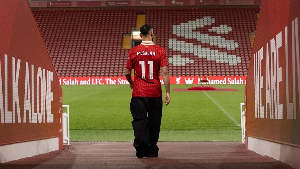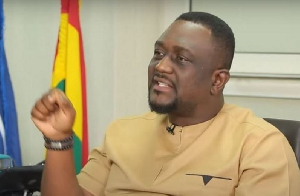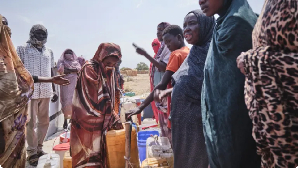The NDC’s 2020 flagbearer, former President Mahama’s recent conscious decision to endorse an apparent ethnocentric epistle by the MP for Bolgatanga Central, Isaac Adongo, leaves much to be desired, so to speak.
The revoltingly ugly article was titled: “Agyapa Royalties fraud is the last straw: The Akyem Sakawa Boys and Grandpas must go”.
In fact, history has taught us that hate speech could spell doom for a nation, so it is quite disturbing that no less a person than experienced politicians like Ex-President Mahama would keep uttering opprobrious epithets and pronouncements that can incite violence.
Apparently, former President Mahama is fond of making ethnocentric comments. Not long ago, when the NPP government deployed security personnel to our borders during the voter registration exercise, Mr Mahama strangely accused Akufo-Addo’s government of trying to ostracise the people of Volta Region on tribal reasons.
If you would recall, a few years ago, a number of prominent Ghanaians and civil society groups, including the then Chairman of Peace Council, Professor Emmanuel Asante and the Media Foundation for West Africa (MFWA) admonished President John Dramani Mahama to refrain from making comments deemed ethnocentric against the NPP and its 2016 running mate, Dr. Mahamudu Bawumia.
Former President Mahama while campaigning at Lawra in the Upper West Region during the 2016 electioneering campaign, was quoted as saying: “the NPP will not allow Dr. Bawumia to be their flagbearer because the party is largely not in support of northerners taking up such positions” (cityfmonline.com/ghanaweb.com, 21/11/2016).
Ex-President Mahama continued: “Sometimes I feel sad when I see some of our northern brothers running and also doing this. They will use you and dump you.
“Let anything happen today and let our brother Bawumia say he is standing for president in NPP. They will never give it to him I can assure you”.
It must, however, be noted that in so far as the right to freedom of opinion and expression stretches to queer and unpopular ideas and statements which “shock, offend or disturb”, a number of human rights treaties, conventions and declarations, including the ICCPR and the Universal Declaration of Human Rights, obligate states to prohibit all forms of hate speech.
More so, hate speech – the advocacy of hatred based on nationality, race, tribe or religion – occupies an exceptional position in international law. Suffice it to stress that the right to freedom of opinion and expression and the appropriate permitted abridgements are detailed in international law -Article 19 of the Universal Declaration of Human Rights and Articles 19 and 20 of the International Covenant on Civil and Political Rights (ICCPR).
Indeed, free speech does not give the right to individuals to say or write whatever they want, whenever they like, without permitted abridgement. Absolutely, freedom of opinion and expression may be subject to restrictions, but these shall only be such as are provided by law and are necessary: “For respect of the rights or reputations of others; for the protection of national security or of public order (order public), or of public health or morals”.
It must, however, be emphasised that free speech is an inalienable right to seek, receive and convey information and ideas of all kinds, by any means which may be deemed appropriate. In other words, the right to freedom of expression denotes the ideas of all kinds, including those that may be deemed offensive.
That being said, the exercise of freedom of opinion and expression carries with it special duties and responsibilities. Take, for instance, in Ghana, our constitution has detailed freedom of opinion and expression; it is, however, subject to permitted abridgment.
Thus, freedom of opinion and expression is not absolute and must of necessity be subject to limitations. More so, the right of free speech and expression does not extend to sedition, slander, defamation and obscenity.
We must, therefore, not lose sight of the fact that most wars, crimes and genocides which were perpetrated against humanity were arguably expedited through the use of hate speech aimed at securing popular support for illegal and violent action.
Suffice it to point out that the use of hate speech has continued in the past and in the modern era. We can cite the Nazi hate speech which preceded the Holocaust, the Radio and Television hate speech which preceded the Rwandan Genocide and al-Qaeda hate speech which preceded the attacks on ‘World Trade Centre on September 11, 2001.
Strictly stating, freedom of opinion and expression is not an absolute right in national and international jurisprudence. In fact, this right, like others, may be restricted to protect and balance other rights and interests. However, it is the complexion and the degree of these restrictions that is often contended in extant human rights and security jurisprudence.
It is, therefore, worth stressing that the inherent dignity and equality of every individual is the foundation of freedom, justice and peace in the world. Thus, it is not surprising that international law prohibits statements which deny the equality of all human beings.
Take, for example, Article 20(2) of the ICCPR requires states to prohibit hate speech: “Any advocacy of national, tribe, racial or religious hatred that constitutes incitement to discrimination, hostility or violence shall be prohibited by law”.
Even though some experts contend that restrictions on hate speech can be justified, Article 20(2) of ICCPR has proven highly controversial and is variously criticised as being overly restrictive of free speech or as not going far enough in the categories of hatred it covers.
In so far as Article 20(2) does not obligate states to prohibit all negative statements towards national groups, tribes, races or religions, if a statement “constitutes incitement to discrimination, hostility or violence,” it must be condemned in no uncertain terms”.
Actually, the two known restrictions on the right to freedom of expression are: The prohibition of advocacy of any national, racial or religious hatred and the prohibition of propaganda.
Nevertheless, the prohibition of propaganda is not innately contradictory to the right to freedom of expression. The right holder, however, has to be cognisant of the duty and obligations which are encapsulated in the international human rights instruments.
Interestingly, though, while propaganda for genocide is codified as an international crime, the propaganda for the incitement to aggressive war is not.
That being said, incitement to commit an illegal act is in itself illegal under international law.
Moreover, incitement, instigation, abetment and solicitation are all common to various criminal codes world-wide. These are generally considered "inchoate offense[s]" or "a step toward[s] the commission of another crime, the step itself being serious enough to merit punishment”.
In the English common law for instance, there are three general inchoate offenses: 1) attempt; 2) conspiracy; and 3) incitement.
“ Incitement conveys a "general label to cover any use of words or other device by which a person is requested, urged, advised, and counselled, tempted, commanded, or otherwise enticed to commit a crime."
In sum, although former President Mahama has inalienable rights as a human being to seek, receive and convey information and ideas of all kinds, such rights are subject to permitted abridgement, therefore we will plead with him to cease misusing such inherent rights that could result in violence.
K. Badu, UK.
k.badu2011@gmail.com
Opinions of Wednesday, 2 September 2020
Columnist: Kwaku Badu















